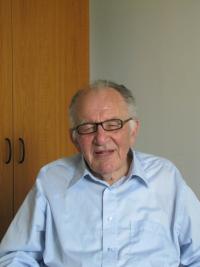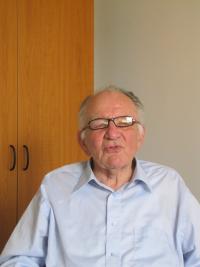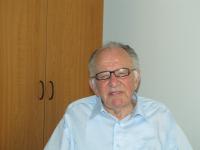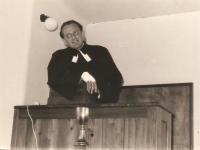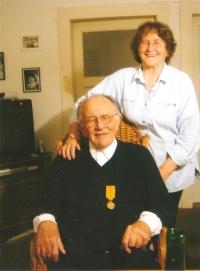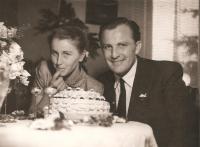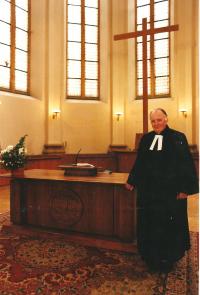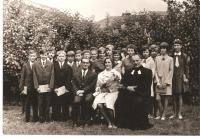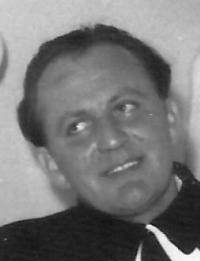To have a heart for others, that means a lot
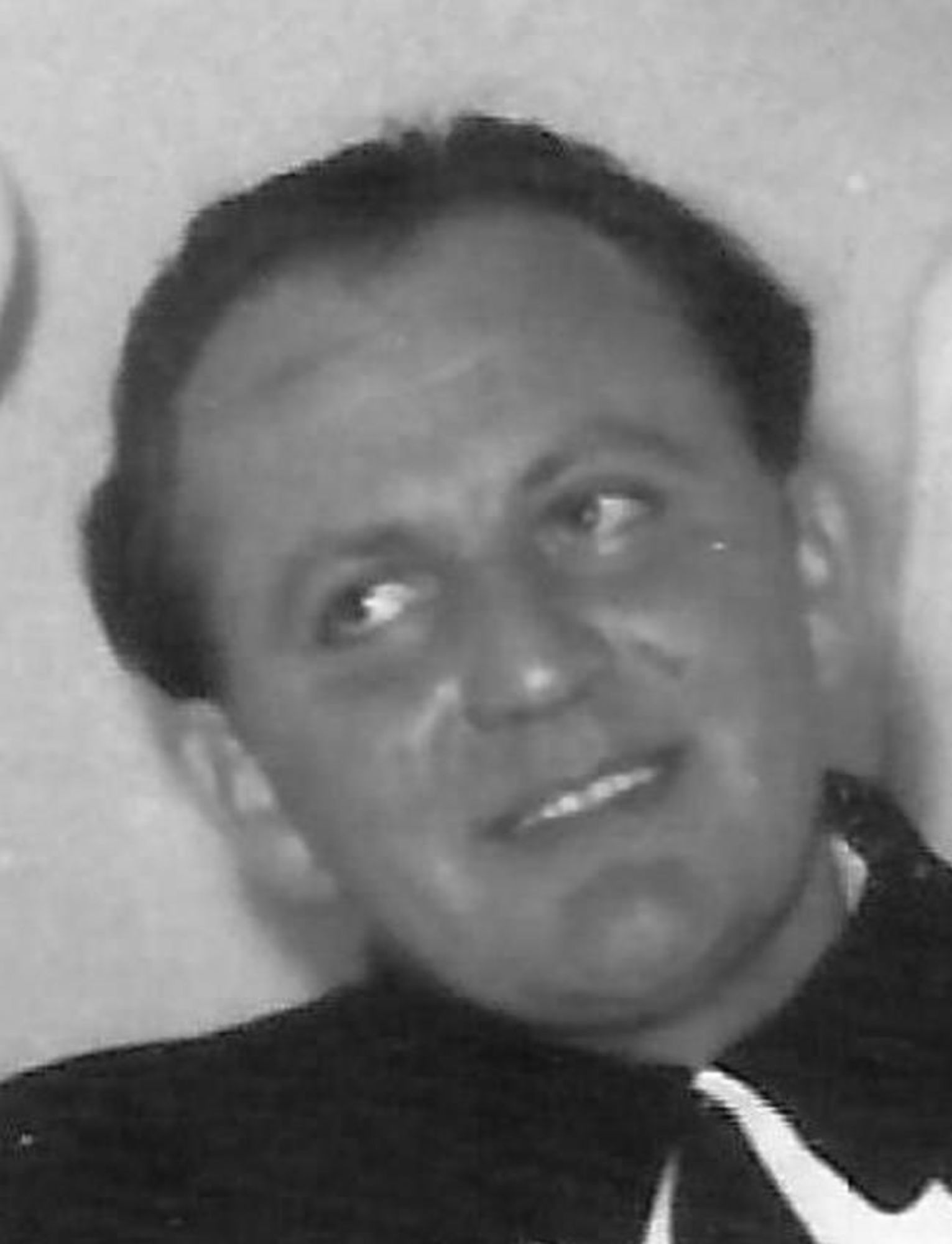
Download image
Alfréd Kocáb was born on 28 June 1925 in Vienna as the younger of two brothers in a devout Czech Catholic family. During World War II he refused to join the German army and was assigned to forced lanour; he and his pious mother hid a fugitive Polish prisoner for thirteen months and later also a German wartime deserter. After the war he moved to Prague. He graduated from the University of Politics and Society, and he and his friend Jaroslav Pfann applied to study at the Komenský Evangelical Faculty of Theology. He gradually found a new spiritual home in the reformed faith in Christ’s kingship. In 1952 he married Darja Myslivečková, who later worked as a psychologist. Together they raised a son Michael and a daughter Magdaléna. In 1955-1960 Kocáb served as a pastor of the Evangelical Church of Czech Brethren in Zruč nad Sázavou. He then moved to the congregation in Chodov near Karlovy Vary, where he was introduced to Pentecostalism. In 1969 he was summoned to serve the congregation in Mladá Boleslav. He worked with youth, communicated with the Taizé community and with Gossner’s industrial mission. He was one of the founding members of Nová orientace (The New Orientation) and its socially engaged theology. After losing his state permission for the provision of spiritual services in 1974, he worked as a boiler man. He repeatedly refused offers of collaboration from State Security. He was in the first wave of signees of Charter 77 in late 1976, and soon after he began working in the Committee for the Defence of the Unjustly Prosecuted. In mid-1989 he was the first Christian Charter-signee to officially return to pastoral care, when he was elected parson of the congregation of the Evangelical Church of Czech Brethren in Salvator Street, Prague. In 1997 he was awarded a Medal of Merit, First Class, by President Václav Havel. Alfréd Kocáb passed away on March, the 15th, 2018.
